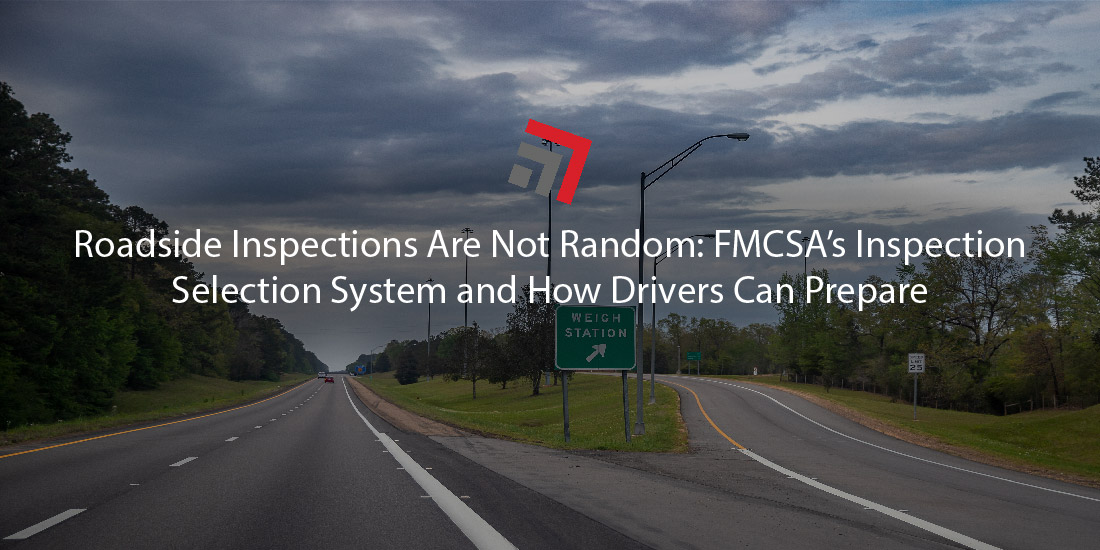A failed roadside inspection is more than a simple blemish on the track records of truck drivers and carriers. Inability to adhere to certain standards can easily allow for unsafe equipment to run amok on the nation’s roadways. Undoubtedly, posing a significant hazard to its own operators and the general public alike.
With that in mind, carriers, along with the drivers who represent them, are at the judgement of law enforcement, who are responsible for deeming whether a commercial vehicle should be pulled aside for roadside inspections.
How does law enforcement make this decision? How do they suspect a vehicle is not up to safe and operational standards?
Inspection Selection System (ISS), Its Scores, and How It Determines the Frequency of Roadside Inspections
Laid out by the Federal Motor Carrier Safety Administration, the Inspection Selection System (ISS) is the reference safety inspectors use to guide their decisions in choosing which commercial vehicles are destined for inspection. Courtesy of Fleet Owner, ISS scores (a numeral value assigned to a carrier) consider a multitude of factors: carriers’ safety performance data in areas of crash history; inspection history; driver history; and safety management experience. Fleet Owner adds that law enforcement officers will use these ISS scores to ascertain which commercial vehicles they will select for their inspections.
ISS scores fall under three categories:
- Inspect (Inspection Mostly Imminent): Scores between 75 and 100.
- Optional (Inspection Optional but Suggested): Scores between 50 and 74.
- Pass (Inspection is not required): Scores between 1-49.
A common misconception among truck drivers is that these inspections are unwarranted or random. In reality, the ISS score attached to the carrier they are representing is a key determiner in whether or not they will be required for regular pull-ins for inspection by law enforcement. In other words, Dominik Kunigk of D.O.K. Insurance writes: “If two or more trucks are at the same scale, the office may likely be more inclined to inspect the truck with a higher score over the one with a lower score”.
In defense of truck drivers, some carriers withhold their ISS information and do not reveal it to their employees. That said, many drivers have no idea that their carrier may have a high score and are subject to recurring inspections solely because of the carrier’s ISS reputation.
What Truck Drivers Can Control: Pre-Trip and Post-Trip Inspections
Unfortunately, simple ignorance of ISS information about their carriers will not excuse truck drivers from being pulled aside for lengthy inspections. However, drivers do have control over regimenting their own quality pre-trip and post-trip inspections in order to cut back on inspections led by law enforcement.
Fred Fakkema of Zonar Systems, told Fleet Owner that through conducting pre-trip inspections, drivers can identify issues with their vehicles and equipment before hitting the road. This includes simple but critical checkups such as ensuring turn signals work properly and having a fire extinguisher on board.
In addition to these quick checkups, Pfost of Bendix also calls on drivers to keep tabs on air-line chafing, rusted brake chambers, or other internal parts are not poking out. Furthermore he advised to Fleet Owner that drivers should walk around and get under their trucks whenever possible to further inspect if something is off with their vehicles.
Final Thoughts
A certain discussion must be considered as to the carriers’ responsibility to reinforce to their drivers of how critical routine pre-trip and post-trip inspections are in maintaining safe standards to their operations. Transparency of ISS scores from carriers onto their drivers is also key in educating drivers that frequent roadside inspections are not a stroke of bad luck, but a sign that their carrier needs to improve its overall safety record on the road.
Please do not hesitate to contact one of our team members if you have any further questions on this topic or any others in domestic logistics.



Recent Comments